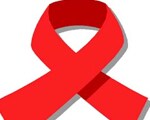Circumcision may help protect men from HIV but it does not protect the wives and female partners of infected men.

Circumcision may help protect men from HIV but it does not protect the wives and female partners of infected men.
AIDS is caused by the fatal and incurable human immunodeficiency virus and is transmitted mostly through sex. It has killed 25 million people since it was identified in the early 1980s and infects an estimated 33 million worldwide.
Studies in the past have demonstrated that men who are circumcised are less likely to become infected by female partners. The foreskin of the penis, which is removed during circumcision, is rich in cells that are particularly easy for the virus to infect. The theory is that removing this source of vulnerable cells makes infection more difficult.
To assess whether circumcision in HIV-infected men would reduce transmission of the virus to female sexual partners, researchers recruited 922 uncircumcised, HIV-infected, men aged between 15 and 49 years. Some were immediately circumcised and some had the procedure delayed for two years. The researchers also followed 163 wives or female sex partners of these men.
It was found that circumcision of HIV-infected men did not reduce HIV transmission to female partners over 24 months; longer-term effects could not be assessed. Condom use after male circumcision is essential for HIV prevention. The sex partners of circumcised men also were no less likely to get other sexually transmitted infections with the exception of one called trichomonas.
However, the efficacy of male circumcision for prevention of HIV in uninfected men is clear, and reductions in male acquisition of HIV attributable to circumcision are likely to reduce women's exposure to HIV-infected men.
Based on the above findings, it may be concluded that male circumcision programmes are likely to confer an overall benefit to women.
DoctorNDTV is the one stop site for all your health needs providing the most credible health information, health news and tips with expert advice on healthy living, diet plans, informative videos etc. You can get the most relevant and accurate info you need about health problems like diabetes, cancer, pregnancy, HIV and AIDS, weight loss and many other lifestyle diseases. We have a panel of over 350 experts who help us develop content by giving their valuable inputs and bringing to us the latest in the world of healthcare.












